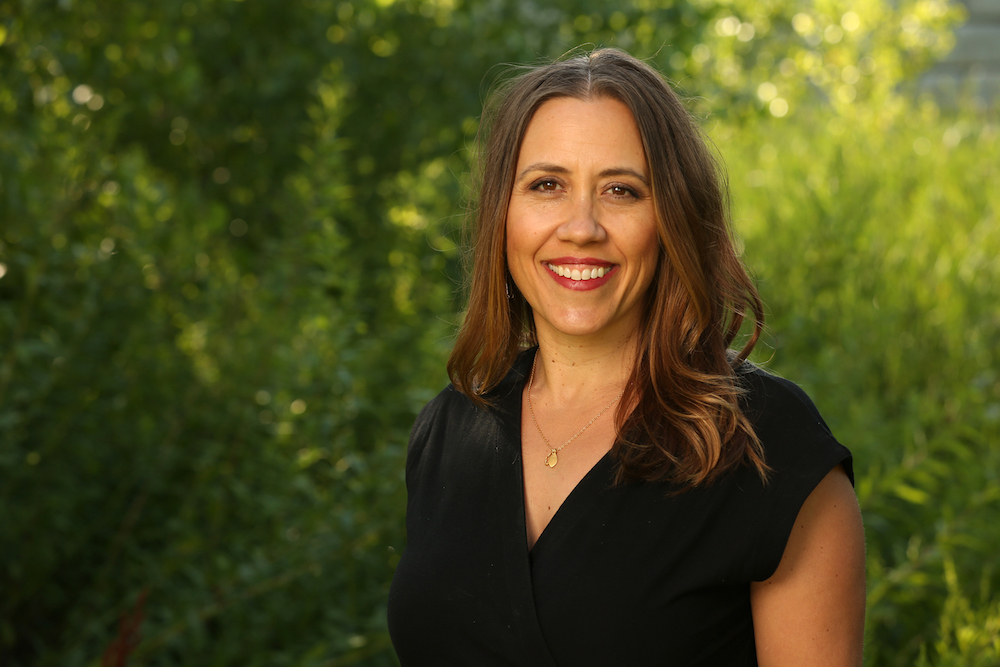A St. Paul native mentored by a legion of local Catholic women is at the helm of an urgent mission to train church leaders and help them respond to the sex abuse crisis.
Kim Smolik has served for nearly three years as CEO of Leadership Roundtable, a Washington-based organization of laity, religious and clergy working together to promote best practices in the management of the Catholic Church.
Her skills for the job were first forged on the playground of a Catholic grade school in the Archdiocese of St. Paul and Minneapolis.
Smolik, 45, took an early interest in leadership -- evident from her command of the playground before the independent firstborn had even started school -- and her faith has always informed her thinking.
She belonged to St. Pascal Baylon Parish on St. Paul's East Side and attended its grade school. Her fifth-grade teacher left a lasting impression by modeling servant leadership and demonstrating the joy that comes from doing work that aligns with one's deepest values, Smolik said.
That same joy was evident when Smolik attended Catholic Youth Camp in McGregor and observed the leadership skills of a beloved camp counselor.
"She taught me that our faith is as much an exciting adventure as exploring through the woods and waters of northern Minnesota," Smolik told The Catholic Spirit, newspaper of the Archdiocese of St. Paul and Minneapolis.
She wrote school reports on changemakers and experienced firsthand the impact of servant leaders. As she advanced her career, Smolik developed a successful track record for the strategic oversight of Catholic nonprofit organizations.
Her time at Catholic Charities of St. Paul and Minneapolis was particularly influential. There she worked for Nancy Utoft, a member of St. Olaf Parish in Minneapolis who has served on a number of Catholic boards and directed multiple nonprofits.
Catholic Charities also introduced Smolik to the Sisters of St. Joseph of Carondelet in St. Paul, whose heart for social justice and young adults inspired her.
"Being with them was as natural for me as breathing," she said. "They were another set of mentors with wisdom, spunk and humor."
Catholic Charities encouraged Smolik to continue her education, so she earned a doctorate in education from the University of St. Thomas in St. Paul, churning out a 500-page dissertation on racial injustice in the workplace, adult learning and organizational development. She built her own independent study to observe women leaders of faith, examining their leadership styles and abilities to create change.
Her repository of mentors -- all outstanding Catholic women in leadership roles -- deepened, steadily preparing Smolik for the job of a lifetime as CEO of Roundtable Leadership.
Time and again, Smolik had studied and experienced the power of leadership development. She knew how to define a good leader: positive, perceptive, vulnerable, intuitive. She knew that leaders aren't born but trained. She realized that Americans mistakenly expect people with one area of expertise to be good leaders. And all that held true for the Catholic Church, where theology majors -- clergy and lay alike -- are unwittingly turned into business managers and human resources directors.
Smolik's passion for developing leaders perfectly aligned with the mission of Leadership Roundtable. The organization was founded in 2005 in the wake of the national clergy sex abuse that first broke in 2002 in the Boston Archdiocese.
During her tenure, its work has taken on added urgency with another wave of painful revelations of clergy sex abuse breaking last summer. Since then, more than 50 dioceses have reached out to Leadership Roundtable for help.
Smolik describes the organization's focus as addressing the church's "twin crises of abuse and leadership failures that covered up the abuse" through a host of training and consulting programs for clergy and lay Catholics.
The Archdiocese of St. Paul and Minneapolis has utilized three popular services from Leadership Roundtable.
Priests from various dioceses participated in its Toolbox for Pastoral Management program. Multiple parishes underwent its consultant training to prepare in-house facilitators who can carry on its principles.
And a cohort of diocesan leaders, including Auxiliary Bishop Andrew H. Cozzens of St. Paul and Minneapolis, underwent its customizable Catholic Leadership 360 program. (He is one of 11 bishops nationwide to participate in the program.)
Bishop Cozzens said Leadership 360 was affirming and challenging, and helpful in part "because it attempts to accompany the participant as they grow and improve."
Leadership Roundtable measures its impact through follow-up surveys and an annual report. This year's 41-page report lays out a plan to create "a new culture of leadership" to "heal the body of Christ."
It calls for greater accountability and less clericalism, expressing the need for more "clergy-lay collaboration and co-responsibility." To make bishops more accountable, for instance, that "co-responsibility" requires two steps: to "engage laity, including women, on personnel boards for clergy" and to "involve women in initial and ongoing clergy formation."
These pointed conclusions resonate deeply with Smolik, who experienced the impact of laywomen again and again in St. Paul. There is much to be done to restore the church, but her work fills her with optimism.
"I'm grateful I get to apply my particular set of gifts to serve the faith, God, the Church in this way," she said. "I'm a naturally hopeful, glass-overflowing kind of person. I'm also a pragmatist. Those two things together help me get the work done. You can't just hope it's going to happen. You have to move to action."
Christina Capecchi writes for The Catholic Spirit, newspaper of the Archdiocese of St. Paul and Minneapolis.

